
ALMA SODNIK, philosopher and first Dean of the Faculty of Arts (1923)
A psychological analysis of the accent. Mentor: France Veber. Promotion: December 22, 1923
She studied philosophy in Vienna, and in Ljubljana at the Faculty of Arts, where she started and completed her long professional career. As the first Doctor of Philosophy at the University of Ljubljana; one of the first university professors in Slovenia; and the first female dean (1952/1953), she proved herself in the then male-dominated academic sphere time and again. In the field of research, she laid the foundations for the history of Slovenian philosophy, and also dealt with aesthetic problems, modern and ancient philosophy.
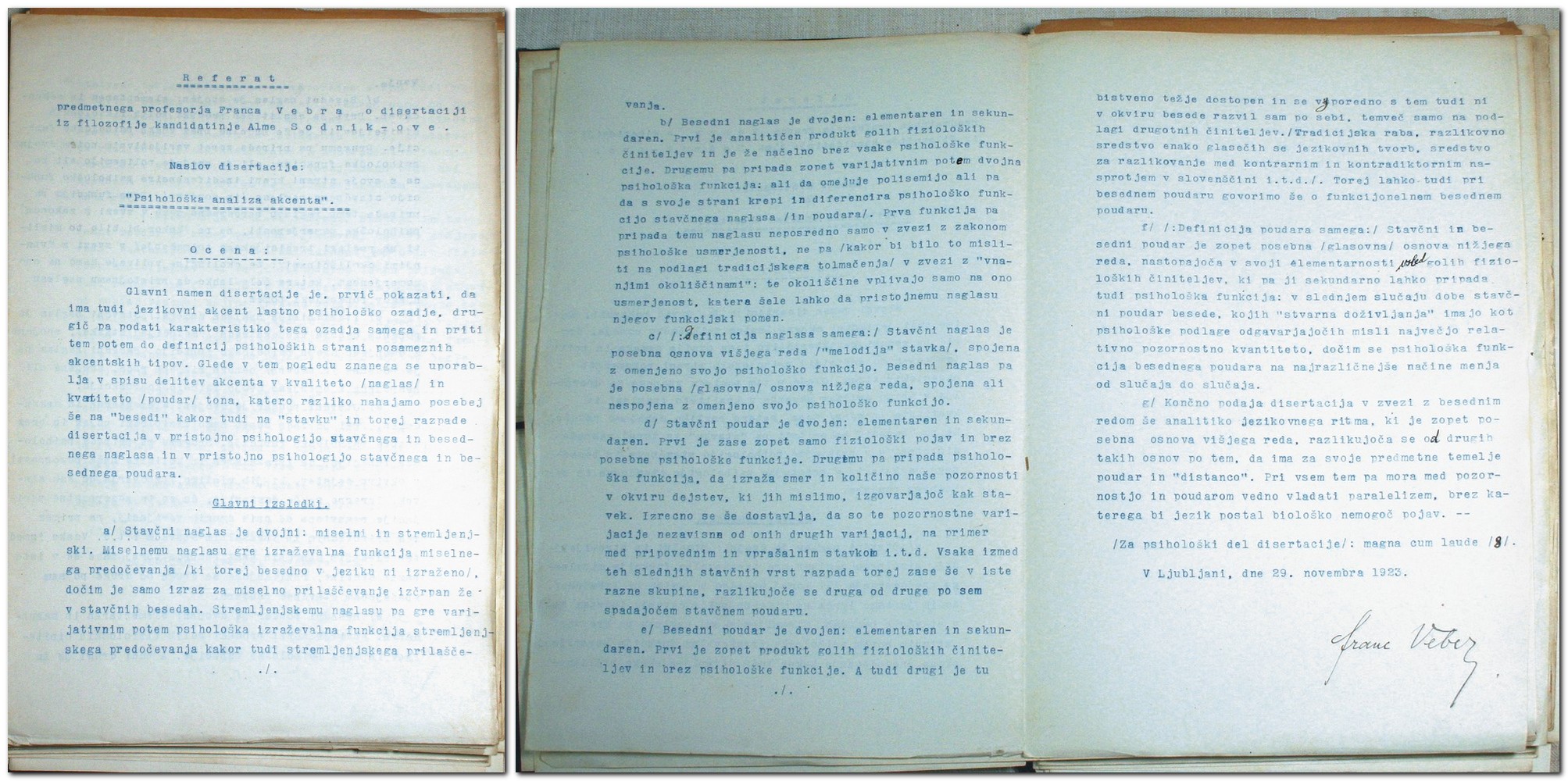
France Veber's evaluation of Alma Sodnik's doctorate dissertation. Source: Archive of the Faculty of Arts, doctorate folder of Alma Sodnik
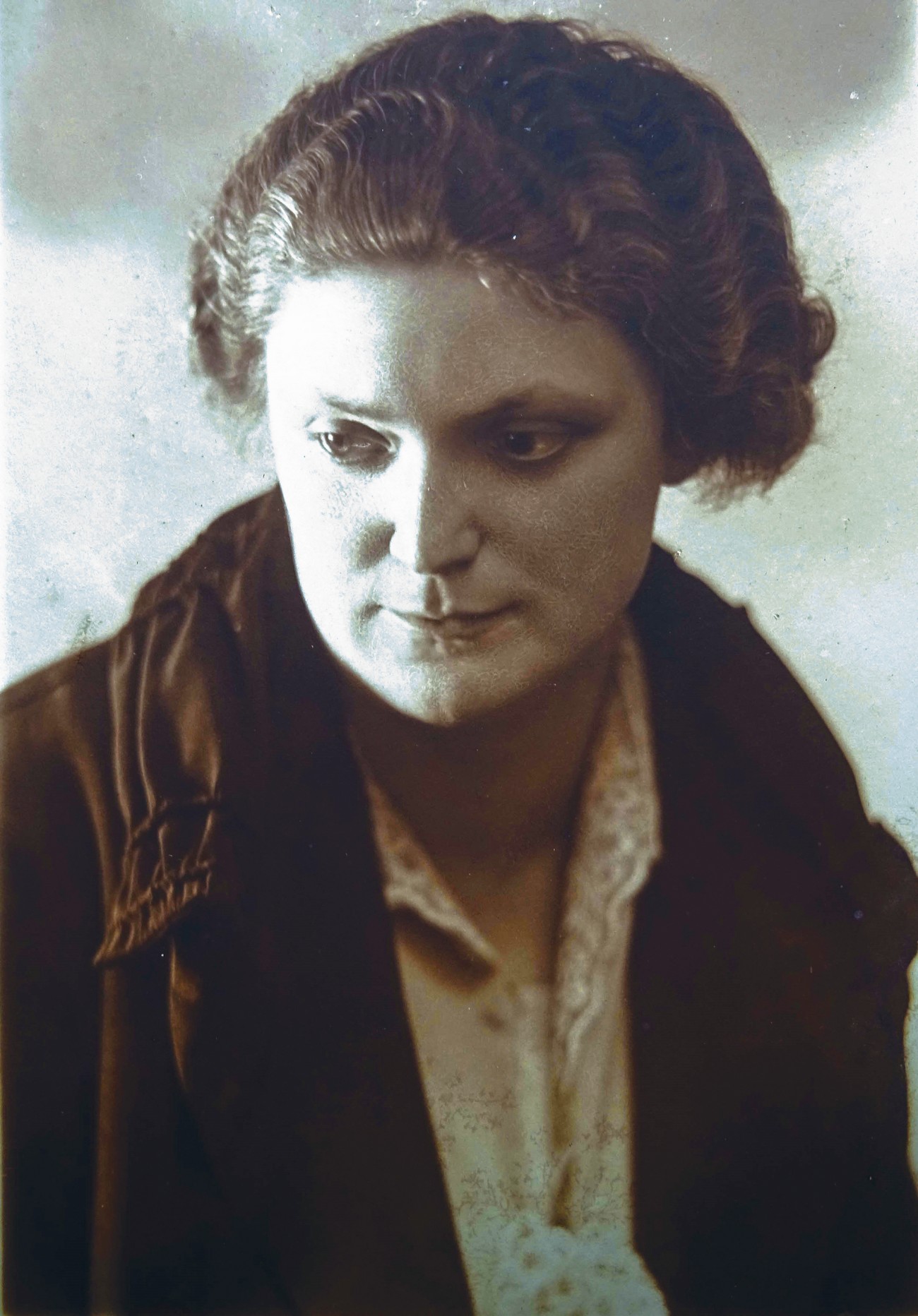
Source: Family Archive of Nana Žargi.
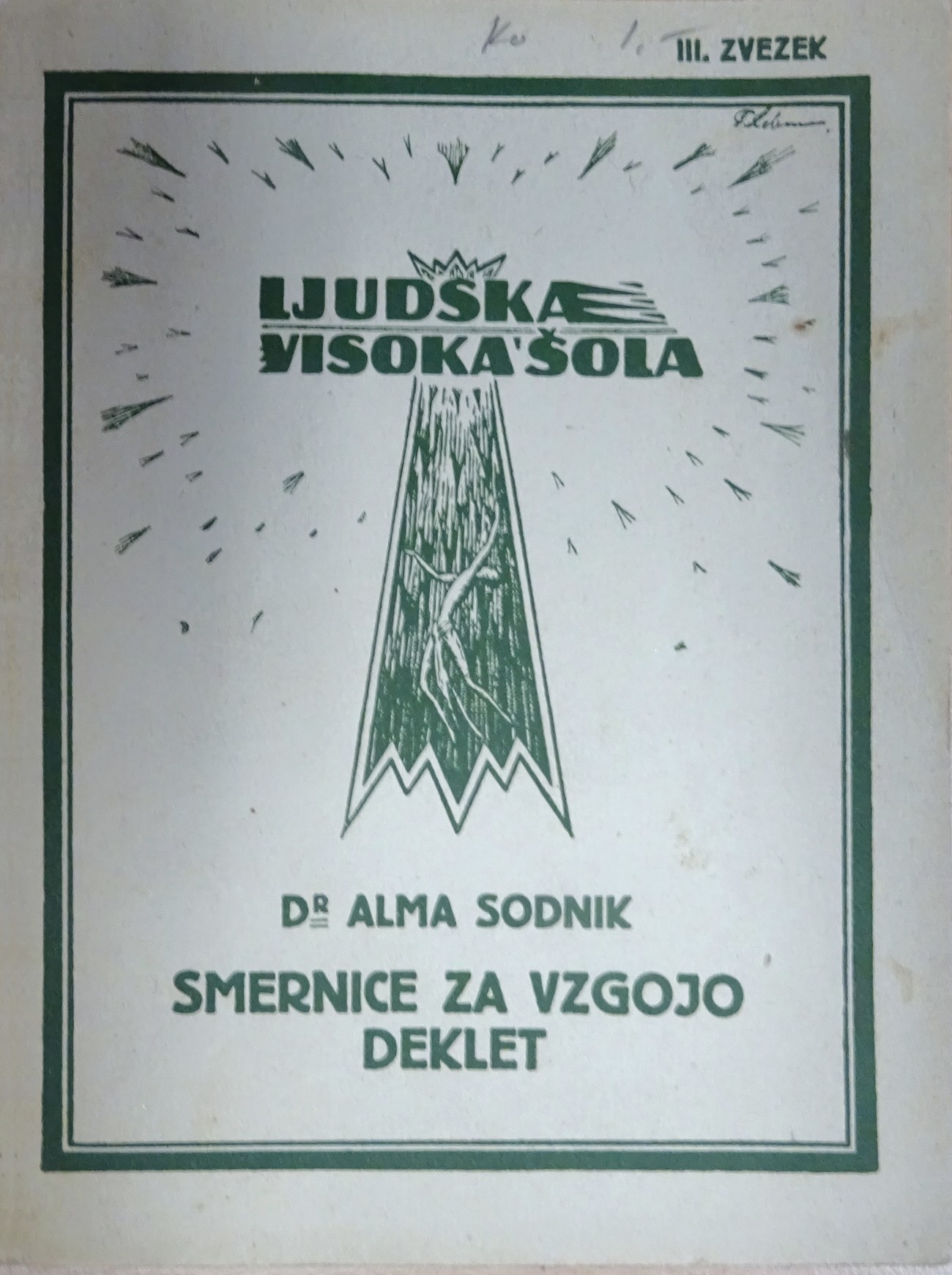
A part of Alma Sodnik's work focused on the question of women. In 1924, she wrote a brochure The Guidelines for Raising Girls in which she spoke in favor of equality of vocation.
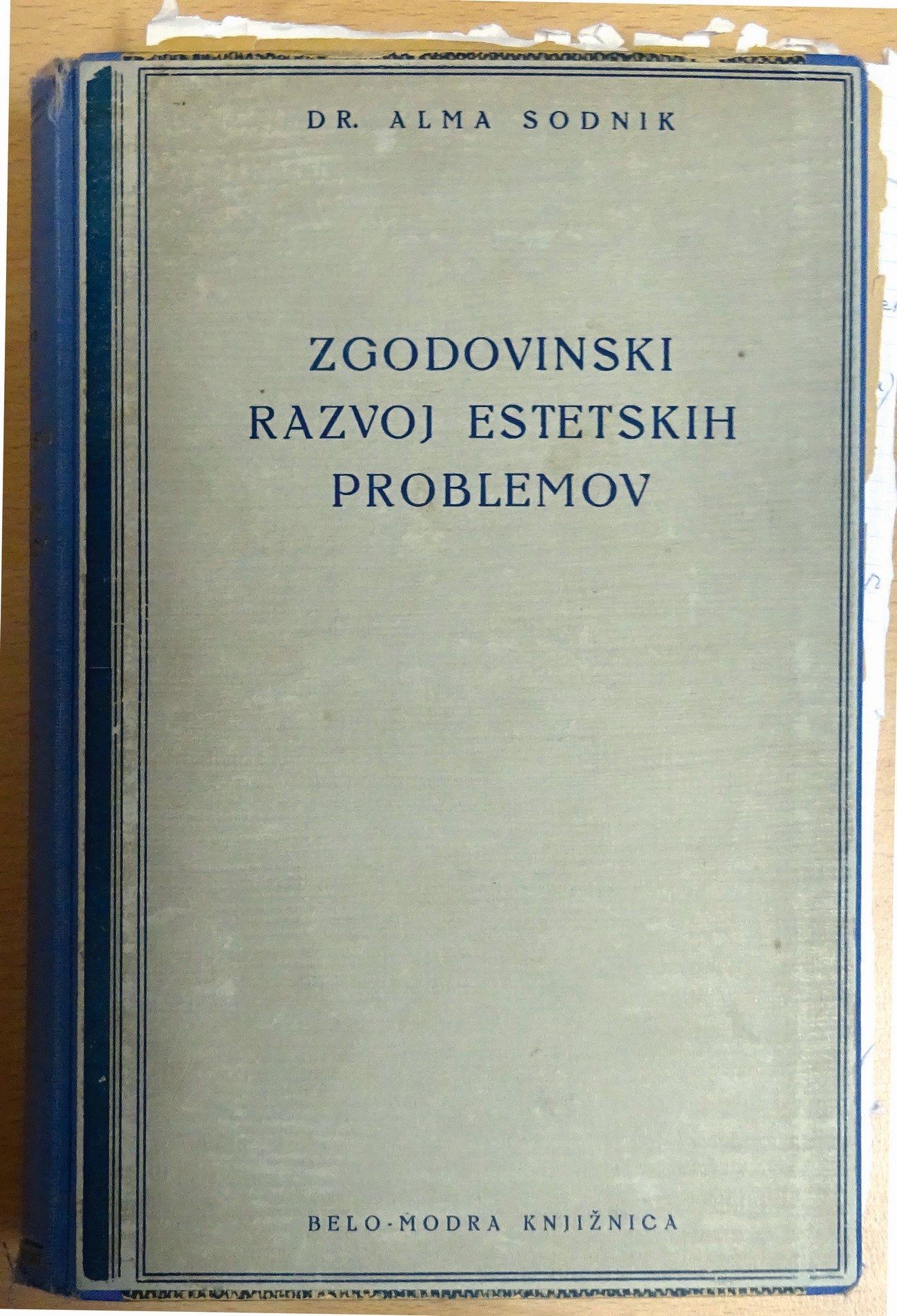
The book Historical Development of Aesthetical Problems focuses on the history of philosophical thought. The book, which was in part written in Vienna, enabled Alma Sodnik’s habilitation at the university.
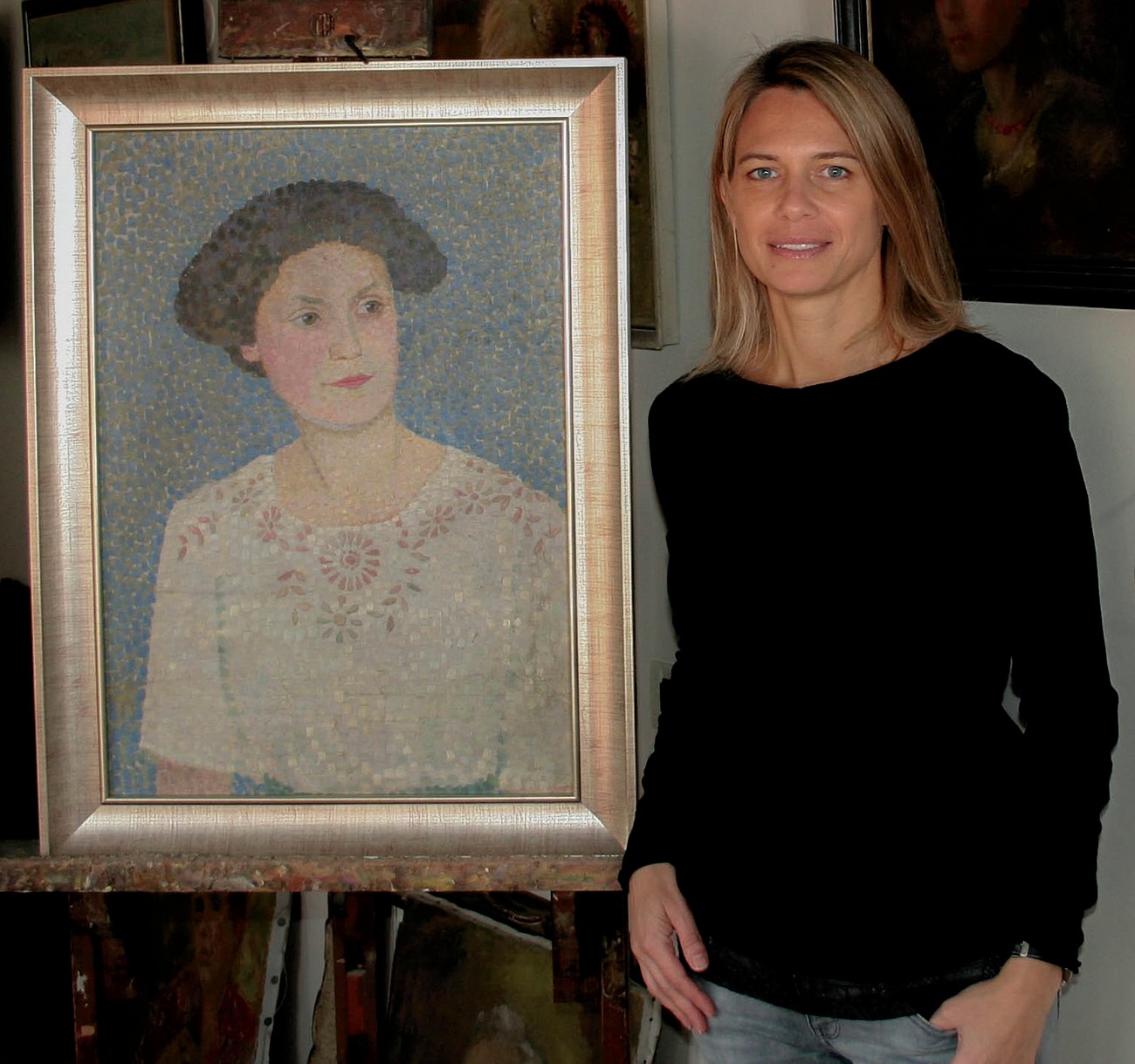
Nana Žargi, grandniece, with the portrait of Alma Sodnik, painted by her sister and Nana's great-grandmother, Anica Zupanec Sodnik.
Lev Kreft, philosopher:
Alma Sodnik was one of the first emancipated female philosophers both in Slovenia and the World. She is remembered as intellectually superior and humanly excellentValentin Kalan, philosopher:
The philosophical opus of Alma Sodnik Zupanec focused on four philosophical topics: being as a matter of subject; being as a matter of bio-existence - essence; being as a matter of nature and spirit; being as a matter of logic.Lev Kreft, philosopher:
I read The Guidelines for Raising Girls in 1971 in the midst of the student movement. I filled every margin with very critical comments. Her point of view is essentialist. There is a feminine essence, which was in stark contrast to the feminism of the 1970s. That is nothing extraordinary, of course, since the book was published in the 1920s. The essentialism emanates from an overwhelming emphasis on women not only as different fundamentally, but also on motherhood as their purpose; and, if not motherhood, caring for everyone else: men, children, etc. This relatively conservative approach has sufficiently clear requirements for where spaces in society need to be opened for women: practically everywhere, but in a way that befits women. That seemed like a ladylike approach to emancipation. But that was in 1971. At the same time, I regularly read the newsletter of the revolution, Tribuna, and I noticed that it was terribly machist; it seemed as if the project represented by Alma Sodnik had not yet been carried out at all, and that Alma Sodnik was in certain ways still subversive in her viewpoint on how society has to change their relationship to women. I realized that what she wrote is not to be sniffed at and that our presumptions still need to come from that ladylike, essentialist approach of a woman who cares for the world, men, children, etc. Especially in order to critically shed some light on why the Left, even the (then) new Left, remains so markedly one-sidedly machist.